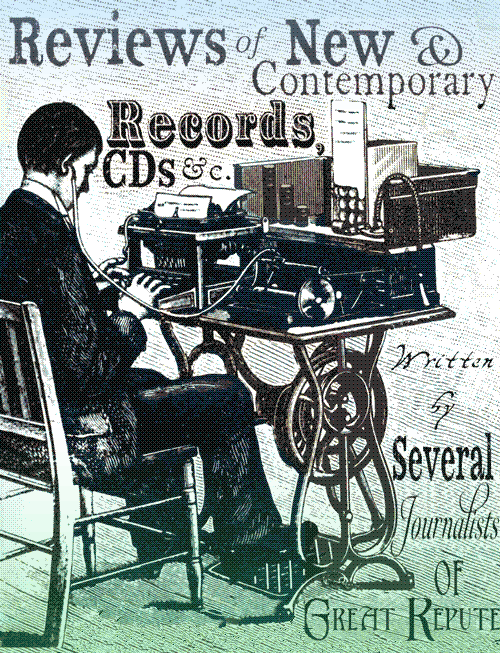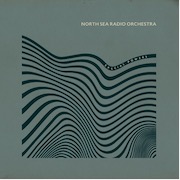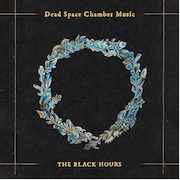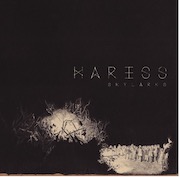 |
 |
| |
|
|
| |
|
|
| |
 |
|
| =
July 2025 = |
|
|
| Marc Bolan book |
| Turtle Skull |
Green
Pajamas
|
North
Sea Radio Orchestra
|
Dead Space Chamber
Music
|
Haress
|
Thought
Bubble
|
Hayden
Pedigo
|
Sailor Free
|
Himmelaya
|
La
Nouvelle Musique
|
Soft
Hearted Scientists
|
Nathan
O'Flynn-Pruitt
|
|
|
|
|
| |
| |
| |
| |
| |
| |

|
BARI
WATTS – MARC
BOLAN: A TALE UNTOLD
(book
from https://www.ataleuntold.com)
Guitarist,
songwriter,
sound engineer and now author Bari
Watts will need no introduction to regular
readers of the Terrascope. His ‘Marc Bolan: A
Tale Untold’ is an impressively weighty
self-published paperback which brings clarity to
the final period in the life of Marc Bolan - one
of Britain’s most colourful pop icons, leader of
the acoustic duo Tyrannosaurus Rex plus creative
director and song-writer of glam-rockers T-Rex,
and an artist who presumably needs even less
introduction to our readers than Bari does
himself.
The
book is described as being an attempt to dispel
over forty years of oft-repeated, erroneous and
misleading information and the direct result of
five years of painstaking research, and I can
easily believe that it’s taken that long; but to
me at least it’s immediately obvious that this
is also something considerably more than a
well-researched book. I’ve read a LOT of well
researched books. They tend to be written by
students of the subject in every sense of the
word, the most detailed of them obviously owing
more to the author’s university training than to
any real attempt to enlighten, delivered in the
form of a thesis and with absolutely everything
cross-referenced and annotated1 to
the n’th
degree2
This
is different. It’s all here. Interviews with the
director, crew members and even featured guests
from Marc Bolan’s Granada TV series, and a
myriad other people who worked with and were
close to Marc during his life, including his
close friend and producer Tony Visconti. The
events leading up to Bolan’s death in September
1977 and the aftermath are also dealt with in
appropriately forensic detail, including
previously unseen police photographs, and
interviews with members of the emergency
services who attended the car smash in Barnes.
The sequence of events following his
death are also documented, including the mystery
of the individuals who gained access to his home
just hours afterwards, removing many of his
personal belongings for goodness knows what
nefarious purpose. The difference is though that
Bari Watts is able to get under the skin of the
story and relate it from the inside, rather than
that of an outsider looking in, which is the
usual fate of a researcher. As a genuine rock
star and a musician himself, Watts tells it the
way he understands we want the story to be told
– vividly, correctly, entertainingly and with
both sympathy and understanding as well as
insight.
I’d
say this is pretty essential read for both
social historians and fans of Bolan’s work. I’d
never really thought of myself as a fan if I’m
honest, but given I’ve held on to my 1971
cassette tape of ‘Electric Warrior’ all these
years and still enjoy it whenever I play it, I
guess I must be. Either way I found this
absolutely riveting. Nice work, Bari! (Phil)
|
|
|
|
|

|
TURTLE
SKULL – BEING HERE
(LP,
CD, Digital on Art
as Catharsis and Copper Feast Records)
Australian
psychedelic rock band Turtle Skull’s second
full-length LP is an enjoyable summer release,
as it’s full of sunlight and warmth.
It’s a fine slice of melodic pop psych,
and fans of bands like early Temples will find
much to love within.
The band’s statement of intent is to
blend heavy fuzz-laden guitars and crashing
cymbals in the backing track with catchy
melodies and excellent vocal harmonies up front,
to create light-and-shade simultaneously, rather
than serially. To
this scribe’s ears, those pleasurable,
accessible tunes and vocals overshadow the
intended underlying heavy distortion and volume,
so light dominates heavy, and there’s nothing
wrong with that.
Turtle
Skull’s lyrical topics include making the most
of living in the moment, putting down our phones
and getting some fresh air or diving into the
sea, and taking personal responsibility for our
actions. Their
sound is well-balanced between Dean McLeod’s
hulking guitar lines and new band member Ally
Gradon’s varied keyboards.
Layered on top are those exquisite
harmonies, with McLeod, Ally Gradon, and drummer
Charlie Gradon all contributing and combining
their voices.
One
track, “It Starts with Me,” reminds me of Thee
Oh Sees with its stabbing melody. The final two
tracks stretch things out compared to their six
economical predecessors, with the slow burning
“Modern Mess” moving along methodically and
hypnotically. Even
longer album closer “Moon & Tide,” clocking
in at nearly nine minutes, is likewise
slow-paced and powered by McLeod’s thunderous
guitar. The
lyrics intone “I am falling in love with all of
the people in my life.”
If that’s what happens in life down
under, I’m packing my bags for Oz to escape from
all the negativity and cruelty in the state of
contemporary society here where the toilet water
swirls in the opposite direction.
The song and album wrap with around a
minute of a capella guitar distortion,
unusual for a record where the melody is
everything and more akin to something one would
expect from, say, Dinosaur Jr.
On
Being Here, Turtle Skull plunks appealing
melodies and harmonies on top of heavy
instruments for a distinct psych sound.
The recipe easily could’ve gone sideways,
but they make it work, so props to the band.
(Mark
Feingold)
|
|
|
|
|
(no
cover art)
|
THE
GREEN PAJAMAS - WHEN
FEVER LETS ME DREAM
(Label
51
Records)
If
you’ve
ever wondered what might have been had Fairport
Convention followed a different path in 1967 and
instead of going full-on folk, followed the
psychedelic muse inspired by the Beatles, Byrds
and Beau Brummels hinted at on their first album,
then listen no further than ‘My Lady Lily Anne’
the first song (though not quite the opening
track; the album opens with a brief Elizabethan
instrumental interlude) on which the Green Pajamas
go full-on Revolver-era Beatles, the rattle-tat
drums and rolling bass lines highlighted by deft
touches of Byrdsian sound effects and THE most
wonderful Richard Thompson-influenced guitar intro
which begs comparison with the peak that Thompson
arguably attained on ‘Calvary’ and ‘Night Comes
In’. The band also break out the sitars and tablas
in homage to post-’68 Beatles on the brilliant
‘Casablanca Sky’, and then wind the clock forwards
in a nod to the Paisley Underground on ‘The Silent
Sea’ which, with its driving beat and fabulous
guitar sound is perhaps slightly more Thin White
Rope than Rain Parade, whose woozy psychedelia and
lush, rounded guitar chords are hinted at on the
five-minute plus ‘Chill Spell’, one of the most
complex and rewarding songs on ‘When Fever Lets Me
Dream’.
Intriguingly,
the
Green Pajamas are now label-mates with the Rain
Parade and indeed the Dream Syndicate on the Label
51 imprint, which by association alone will
hopefully bring them the attention they so richly
deserve. The new listeners they will no doubt
attract could do worse than check out ’Queen Of
Arrows No. 2’ which is probably the most typically
Green Pajamas number on this album (‘Queen’ is
indeed something of a trigger word in the world of
the Green Pajamas: ‘The Fairy Queen’, ‘The Queen
Bee is Dead’, ‘Queen of Broken Hearts’, ‘Queen of
Sunshine’, ‘The Queen’s Last Tango’ all having
been featured on previous albums) with ‘The
Moonlight Down’ running it a very close second:
both songs are instantly identifiable and could
hardly be by anyone else, and either could easily
have been featured on ‘Strung Behind The Sun’ or
‘All Clues Lead to Meagan’s Bed’, two highly
regarded Pajamas albums from the 90s.
Every
new
Green Pajamas album invariably features a couple
of songs that absolutely floor me. Their very best
have half a dozen, and by that score alone ‘When
Fever Lets Me Dream’ is up there with the cream of
what is by any measure already an astonishingly
rich catalogue. The Green Pajamas’ moment in the
limelight, often so tantalisingly close over the
course of the past 40 years, has rarely been
closer than with this new collection.
I
understand this gem is being released "soon" so
keep your eyes on the link for details.
(Phil
McMullen)
|
|
|



|
NORTH
SEA RADIO ORCHESTRA – SPECIAL POWERS
(LP/CD/DL https://northsearadioorchestra.bandcamp.com/album/special-powers)
DEAD
SPACE CHAMBER MUSIC – THE
BLACK HOURS
(LP/CD/DL from https://dscm.bandcamp.com/album/the-black-hours)
HARESS
– SKYLARKS
(LP/DL from https://haress.bandcamp.com/album/skylarks)
Recently,
while on “the Socials”, I mentioned that I had
misplaced my musical mojo (other monthlies
presumably still exist), but that three releases
(two new and one not so new) had done much to
restore my enthusiasm for new recorded music. I
lumped them together as ‘pastoral’, an
inconvenient and not especially accurate
catch-all, by which I meant that they were
generally measured and meditative without being
overly troubled by pesky beats, with which I
have become increasingly unenamoured of late.
They also exhibit both fascinating amalgams and
contrasts of light and shade.
To
the light, then. North Sea Radio Orchestra
is a contemporary music ensemble led by Craig
Fortnam, who may also be familiar to The Reader
through his work with Arch Garrison. Special
Powers blends Fortnam’s exemplary ear for
a folk tune with considerable classical
compositional talents. Here be melodies. Sweeps
and shades of Debussy and Vaughan Williams win
out over electronic bleeps to mark out majestic
instrumental opener ‘Mansions in Eternity’. It’s
how you wish A Winged Victory for the Sullen
would sound more often, if only someone gave
them a slap. Much of the vocal heavy lifting is
courtesy of Chantelle Pike, whose balanced tones
sound neither overly rustic nor overwrought,
contributing to the overall feeling of lightness
of being without sounding lightweight, such as
on the breezy ‘Hearty’ and beautiful reverie of
‘All Alice Like’. The mostly Fortnam voiced
title track is a sheer delight that evokes his
Arch Garrison alter-ego with the added layer of
turn of the 70s Tull orchestration. And isn’t
music a wonderful thing? The odd substituted
note here, a rearrangement there, and you have
the basis for ‘The Bucket Of Water Song’ by the
Tiswas lot. There’s an extra point, right there.
It ends on a fittingly high note
(metaphorically) with the lengthy and imposing
Yeats-penned ‘The Players Ask For A Blessing On
The Psalteries And On Themselves’ (a title you
feel the erstwhile Bopping Elf would have sold
his soul for twice over). When an album finishes
leaving you with a broad smile a far-away
expression and a glad heart then you know you’ve
been well and truly got. Such are Craig and
co.’s Special Powers.
As
its title implies, The Black Hours by
Bristol-based quartet Dead Space Chamber
Music is an altogether more foreboding
arrangement of female voice, strings and
percussion evoking vaulted ceilings and dark,
dank recesses. Released a few years ago, and evoking
Dead Can Dance and Texan favourites Book Of
Shadows, their sound conjures the Gothically
macabre (‘Liement Me Deport’) and the ghostly
sombreness you might associate with Anna Von
Hausswolf (‘Bryd One Brere’). They also have a
good stab at Welsh wassail (‘Mari Lwyd/Morfa’r
Frenhiness’) on which they stamp their spectral
trademark, building to a powerful, goosebump
inducing crescendo. However, the cornerstone of
this most splendid and impactful of releases is
‘The Pit/Dissolved in Ashes’, a title that
probably conveys more than all this verbiage and
represents a pinnacle of experimental (and one
suspects semi-improvised) soundscape of dark
shades. If you were looking for visual
representation, think Johnny Nice Painter from
the Fast Show. The Black Hours proves
the adage that the darker it is the lighter it
gets, as if being sonically keel-hauled is the
ideal therapy to banish any blues. Remember to
Gothic or Go Home, as they say.
Emerging
from the malleable Shropshire/Welsh borders (a
veritable tear in the fabric of reality, take it
from me), and with a pedigree including
Bonnacons of Doom, Hey Colossus and Kling Klang,
Haress trade more in brooding, and eerily
dense textures than their three guitar and drums
configuration might suggest.
They are also more bewitchingly folk than
classically influenced although even here you
need to squint to make out the far-off hamlet of
Trad Arr, leastways until the grand denouement.
It’s pastoral if you like your terrain more
rugged and the seating a little uncomfortable,
to the extent that packing antihistamine and
wearing elasticated ankles might be advisable.
This is bittersweet, at once tranquil and a
little edgy. ‘Blood Moon’ builds the sound, Liz
Still’s ethereal calls heralding the signature
changes. The swampy ‘King David’ doubles down on
the repeat and circular motifs and you’d be
unsurprised if Wil Oldham or Daniel Higgs
started a-croakin’ or a-hollerin’ over the top.
‘Coin Clippers’ emerges comparatively briefly
but purposefully from the mists of a bleak,
outlaw infested landscape, but really, it’s
‘Skylarks’ that we’re all here for. Ushered in
by a distinctly West Coast-style noodling, this
here’s the vocal track with its repeat refrain
and infectious singalong prompted by an
insistent guitar riff and melodeon accompaniment
before the ‘Skylarks choir’ pile in, in place of
the usual live audience. Over 14 joyous minutes,
not a second of which is wasted, it burrows its
way in and stays there indefinitely. That’ll be
name, rank, serial number and Skylarks chorus,
then, soldier. If Special Powers
represents (more or less) the light and The
Black Hours is the shade, then Skylarks
occupies an approximate middle ground. Like Special
Powers it’s a contender for your writer’s
album of the year so far, while The Black
Hours is a belated find to keep and to
treasure. In fact, should anyone out there be
tempted to organise it then a triple bill
concert in a suitably impressively spiritual or
manorial setting would be just the ticket.
(Ian
Fraser)
|
|
|

|
Thought
Bubble – Mostly True
(All
formats from https://bubble.bandcamp.com/album/mostly-true)
Their
seventh album, would you believe, and the second
with vocalist Peter Gelf, sees ex-Glowpeople
Chris Cordwell and Nick Raybould slip further
from their danceable festi-psych and into
deeper, ever shifting currents.
Aside
from offering sage advice, ‘It’s Best Not to
Look at the Sun’ confirms Gelf’s voice as
something of a coupling of less parched Bill
Callahan and passable but less histrionic Scott
Walker, as he intones over polyrhythmic
electronics and percussion. The outcome is that
it occupies an intriguing space where Ex-Easter
Island Head docks successfully with Peter
Gabriel circa Security, and which hints
at a strong stylistic template for much of Mostly
True. Menacing machines and Raybould’s
elementally engaging tub-thumping propel the
insistent and compelling ‘Rattlepool’. Should
you have any cobwebs, present them here for
blasting now. One of the strongest yet measured
cuts here is ‘Three Apples’: its symphonic
synths, choppy guitars and more conventional
drumming indicative of Hawkwind during one of
their most striking and evocative (mostly)
instrumental interludes. Weighing in at almost
10 minutes, ‘Anna’ provides the album’s most
aerobic moment. Featuring spoken word vocal by
Zinnia Su in addition to Gelf’s crooning, this
closing number overlays swoony introspection
with hyperbolic beats and provides a fittingly
euphoric climax. It remains to be seen in what
direction Thought Bubble’s restless questing
takes them next. I have a feeling that it won’t
be too long before we find out.
(Ian
Fraser)
|
|
|

|
HAYDEN
PEDIGO – I’LL BE WAVING AS YOU DRIVE AWAY
(LP,
CD, Digital on Mexican
Summer
Records)
There’s
something about acoustic guitarist Hayden Pedigo
that makes him so endearing.
You see the eccentricities – the run for
office on the city council of Amarillo, Texas,
the nudie suits, and the Motor Trilogy albums,
so named because of their somewhat odd cover art
by Jonathan Phillips (this is the conclusion,
after 2021’s Letting Go and 2023’s The
Happiest Times I Ever Ignored).
Plus, there are the rather obscure
references in some of his titles, this latest
from a heartbreaking episode of the old TV show
‘Little House on the Prairie.’
And then he picks up his guitar and
you’re locked in, whisked away into the
delightful, intricate melodic world of his
composing and playing.
If you watch any of the videos of him
playing, the calmness and concentration of the
skinny kid in a cowboy hat are magnetic.
There
are flashes of John Fahey and Robbie Basho
herein, but Pedigo has carved out a unique path
among fingerpickers.
I’ll Be Waving… has a more
filled-out sound than its two predecessors in
the trilogy. The
seven tracks variously include touches of
electric guitar, piano, Mellotron, violin, pedal
steel, and a small string section.
The songs contain his trademark of going
full-stop mid-song and beginning a new section,
which can sound like an entirely new song,
before returning to the original melody and
tempo. This
is perfectly embodied in my favorite track, “All
the Way Across,” which starts with an intro,
then a beautiful, quiet, contemplative melody in
4/4 that sounds very different from the intro,
then another stop and re-start into a gentle
waltz, almost like a minuet, then another round
or two into the previous melody lines.
It’s bloody gorgeous.
The
fascinating “Smoked” makes haunting use of
Mellotron chorus astride Pedigo’s minor chord
acoustic jangle.
It reminds me very faintly of some of the
acoustic guitar playing in Jim Croce’s “Time in
a Bottle.” The
multiple sections are cordoned off by two
ascending chords, simple but somehow so
powerful. There
are so many moments in this record –
such as Pedigo’s use of harmonics in “Hermes,”
counterbalanced by subtle strings and synths and
his own circular picking.
He can make his guitar sound like one of
those 19th Century music boxes with
the round, jagged punched metallic disks, rich
and warm.
The
closing title track is a perfect composition,
with intro, interstitial tissue, and a wistful
main body that’s part Wyndham Hill, part Merle
Travis or Doc Watson rag, with sensitive pedal
steel by Nicole Lawrence. It’s followed in some
versions of the album by a bonus track with
Hayden reciting the credits.
That alone is the sort of tongue-in-cheek
he’d do, but going full-on Hayden Pedigo, the
voice is treated with weird effects.
And how many artists thank you for
listening to the record at the end?
All
three albums in the Motor Trilogy are well worth
your time, and with this one he goes out on a
magical note. He
also snuck in a live album in 2024, Live in
Amarillo, Texas, which is also wonderful,
containing some alternate versions of his songs.
Pedigo’s
tunes can be melancholy or can bring sunshine
into your happenings, depending on your mood.
But his music is always lush and
soothing, gentle and playful, and you tend to
overlook the elegant technical complexity of his
playing. This
is one of my favorite records of the year, do
give it a listen.
(Mark
Feingold)
|
|
|

|
SAILOR
FREE - SPIRITUAL REVOLUTION PART 3
Available
on Tide
Records
Italian
quartet Sailor Free have been recording for
nearly 35 years. We reviewed their sophomore
effort (The
Fifth Door) 30 years ago, so you could say
we’ve been championing their psychedelic
progressive music (almost) since the beginning.
Their latest concludes singer / songwriter /
bassist / keyboardist David Petrosino’s
multi-media Spiritual Revolution concept-trilogy
which began in 2012 and is loosely inspired by
Tolkein’s Silmarillion
and the Spiritual
Revolution
movement.
As with many concept albums it tells a story
through its lyrics which are included in the
accompanying booklet.
A brief overture welcomes listeners via
a triumphal drum march before we encounter
‘Incognito,’ which can be interpreted as the
descent into anonymous isolation since COVID
rearranged our lives and interpersonal
relationships: “The pain is all around/Well
masked and isolated.” But we can overcome this
bump in the road: “Friends, we’re pointed
out/restrained but not defeated.” The song
segues easily into heavy rock, progressive
strings, and orchestral pomp.
‘All I Need’ serpentines around
dreamier segments with Cecelia Amici’s subtle
vocal backing presenting a quiet counterpoint to
Stefano Barelli’s strident guitar solos. ‘The
Ghoul Within’ is appropriately swathed in a
Sabbathian metal overcoat, but the Moody
Blues-like ‘So Beautiful’ offers a calm after
the storm, again featuring Amici’s yearning
vocals. ‘Not For Me’ is another emotional
triumph, with no less than five backing singers
and the six-member Cecelia Amici Vocal Ensemble
enhancing the atmospheric presentation which
also benefits from lovely low whistle and shanai
from Stefano Ribeca.
But don’t get too comfortable - ‘Let Me
In’ offers distorted vocals, ominous keyboards,
and pummeling guitars to get the blood flowing
before the playful ‘Disappear’ delivers a nice
respite, complete with Ribeca’s sax flourishes
and some nifty fretwork from Barelli. The full
accompaniment of backing singers, dual guitars
AND bass assemble for the spiritual awakening
delivered by ‘Gambling.’ Petrosino’s self
analysis permeates
his lyrics: “Need
a new established faith/Need to work and find
my way…God save the human nation/So it don’t
have to weigh on me.” One of the Spiritual
Revolution’s aims is to help each of us to find
the power within ourselves to work together to
make the world a better place. The concluding
part of Sailor Free’s trilogy offers guidance
and hope for all to reach that goal.
(Jeff
Penczak)
|
|
|

|
HIMMELAYA
- LOST HORIZON
Double
LP, Double CD www.fruitsdemerrecords.com
Himmelaya
are a new group put together by Jochen Oberlack
of Bellerophon records in Dusseldorf. Jochen got
in touch with Fruits de Mer label owner
Keithabout an instrumental project, after
discussions Britt Ronnholm from Swedish duo Us
and Them was suggested as adding spoken vocals
plus Astralasia’s Marc Swordfish being heavily
involved and this beast of an album is the
result.
Other
friends are also along for the journey including
nick nicely, Schizo Fun addict and the Lost
Stoned Pandas amongst others.It has taken a long
time to come together with contributions coming
from multiple countries.
Things
start off with the relatively straight forward
rock of ‘Belle Du Jour’ before we enter a gnarly
‘Black Forest’, sparkling guitars and keys over
a steady motorik beat. A lengthy ‘Ashra Shirley’
clocks in at over ten minutes, a tangled web of
sounds, eerie and dense. ‘Deutscher Herbst’,
rattles along at a faster pace before we descend
into the languid pool of ‘Celestial Orb’, a
drowsy song full of eastern promise, the lengthy
, drifty ‘Shangrilaya’ rounds out the first of
the LP’s.
A
fine,funky song entitled ‘Floh De Ho!’,
introduces the second of the LP’s in fine style,
before long we encounter the ‘Autobahn to
Dusseldorf’ where a great deal of concentration
is required on this stretch, as the title
suggests it is firmly in the Krautrock style.
We’ve now taken a side road and chilled a bit to
‘Komets Berrattels’, however it is now getting
dark and so into the twilight world of ‘Nimbus
Thitherward’ we descend, before ending our
journey in the frenetic centre of ‘Metronopolis’
a great way to end this trip.
(Andrew
Young)
|
|
|

|
LA
NOUVELLE
MUSIQUE- S/T
LP
www.fruitsdemerrecords.com
La
Nouvelle Musique comprise of Joanna Beck and Ian
De Silva, a London based duo who together create
some rather beguiling music, Joanna writes,
sings and plays piano and bass and Ian writes
and plays guitar. They put out a very limited 7”
single a few months ago, but this is their debut
album and what a gem it is too.
From
the very first notes of the gorgeous ‘The
Mirror’, to the closing song ‘Epitaph’, it oozes
class. Icy, frozen Nico’esque vocals meet over a
palette of pianos, keyboards, guitars, bass and
drums, Joanna handles most of the vocals but Ian
does sing the mariachi inflected ‘Spirit Level’.
An
early highlight for me is their delicate, folky
cover of Sandy Denny’s ‘Crazy Lady Blues’
Joanna’s background in theatre and film lend the
songs a cinematic feel none more apparent than
in a rousing ‘Catalonia’, another highlight is
the following intimate ‘Polestar’.
The
most obvious single on the album is ‘Still
Life’, a fine, up tempo pop rock song. ‘Forest
Fire’, is the second of the two songs sung by
Ian, it’s a lightly orchestrated song with a nod
of its head to a certain gilded palace of sin,
and it features some fine organ and guitar
throughout. This wonderful debut album ends
suitably enough with ‘Epitaph’, although I’m
very much hoping it won’t prove to be their
epitaph. It’s a fine way to end the album,
dripping pianos and lovely vocals.
(Andrew
Young)
|
|
|

|
SOFT
HEARTED
SCIENTISTS – THE PHANTOM OF CANTON
CD
www.softheartedscientists4.bandcamp.com
Over
the course of an hour and seventeen minutes, in
the company of the Welsh wizards Soft Hearted
Scientists we are treated to a wonderful place
wherein Syd Barrett meets Lewis Carroll in a
field of foxgloves with dragonflies and
sunflowers.
The
album is a psychedelically infused concept of
sorts, for anyone who has felt a sense of
identity loss during times of crises. It’s an
ambitious album taking in elements of 1960’s
psychedelia and folk rock music, early prog and
electronic music. The band consists of Nathan
Hall who writes ,sings, plays guitar and
keyboards, along with Dylan Line keyboards,
electronics and sound effects, Paul Jones six
and twelve string electric and acoustic guitars
and mandolin, Michael Bailey bass and producer
Frank Naughton keyboards, all drums, engineering
and production.
With
a brief welcome with ‘Phantom Hello’ we enter
the ‘Phantom of Canton’, to be greeted by a
strange thicket of foxgloves in ‘Foxglove Song’,
allowing the band to stretch out a bit before
setting seed, a questing ’Hello, Hello’ brings
forth jumping beans and Sunflowers, meanwhile
patrolling Dragon flies have been alerted, along
with fireflies and bees. ‘Fly by Dragonfly’ is
everything a song by that name should be, a
dreamy reverie, but beware every apple has a
worm inside it, all of which leads us to the
beckoning chasm of ‘Approaching The Canyon’ and
The Canyon (smile of the sun-eyed woman) where
we explore the difference between fantasy and
love, with a nice wig out with electric guitar,
organ and electronics, excellent stuff.
After
a brief intermission we meet the unattainable
‘Wonder Girl’ and attend ‘The Cloud Parade’ at
the sea side. ‘The Trapdoor Opens’ to the
‘Trapdoor In the Sky’, where our dreams take on
a proggy celestial madness, mindful that we must
obey ‘The Laws Of Physics’. After another take
on ‘The Cloud Parade (Submarine reprise)’, we
sing a ‘Song For My Sunflower’ pretty groovy it
is too, this trip ends with ‘Golden
Times’ a
song in multiple parts, dissolving into trippy
dubbiness and laughter. ’A Phantom Farewell’,
bids us goodbye, a
short 1920’s sounding lo fi wax cylinder type
recording of a guitar refrain, this is a great
album, seek it out and your life will be all the
better for it.
(Andrew
Young)
|
|
|

|
NATHAN
O’FLYNN-PRUITT
- SONGS FROM BEHIND A MOUNTAIN
(LP
from Figure
& Ground)
I
don’t have an Easy Listening section in my
LP collection, but if I did this debut album
from Nathan O’Flynn-Pruitt, ‘Songs from
Behind a Mountain’, would be filed as far
away from it as humanly possible.
Opening
song ‘Great Big World’ sets the tone for the
record, Nathan’s vocals sounding closer to a
death rattle than merely world-weary as he
croaks ‘People who hate losers and never
played a game in this life / Never took a
risk so never found themselves behind’. One
rather gets the impression that there’s some
unfortunate life experiences behind the
words, and this is confirmed on ‘Path and
Time’ which features rural blues style
fingerpicking and roughly strummed chords
before launching into harrowing descriptions
of childhood memories ‘The dog I killed
by mistake as a kid / Led our way down
this gravel road that led us here’.
Fortunately,
perhaps, it’s not all Sturm und Drang.
A
former exponent of the experimental
noise scene now relocated to rural
Humboldt County, California,
Nathan often allows his guitar to speak for
him, and when it does, his evocative
primitive finger-style playing is offset by
sometimes dazzling, almost hallucinatory
fretwork. This is best heard on the fragile,
at times almost beautiful ‘Guidance’, the
longest track on the record and also the
only instrumental. Part of me was left
wondering what riches an entire album of
guitar instrumentals might deliver; but on
reflection, such albums are nearly two a
penny right now, and Nathan O’Flynn-Pruitt’s
lyrics are so raw, so emotional, that they
mark this out as something not only unique
but very special indeed.
(Phil
McMullen)
|
|
|
|
|
|
|
|
|
|
|
|
|
|
|
|
|
|
|
|
|
|
1
like this
2
and this. Irritating after a while, isn’t it?
Thankfully, there's none of this kind of
nonsense.
|
|
 |
|

